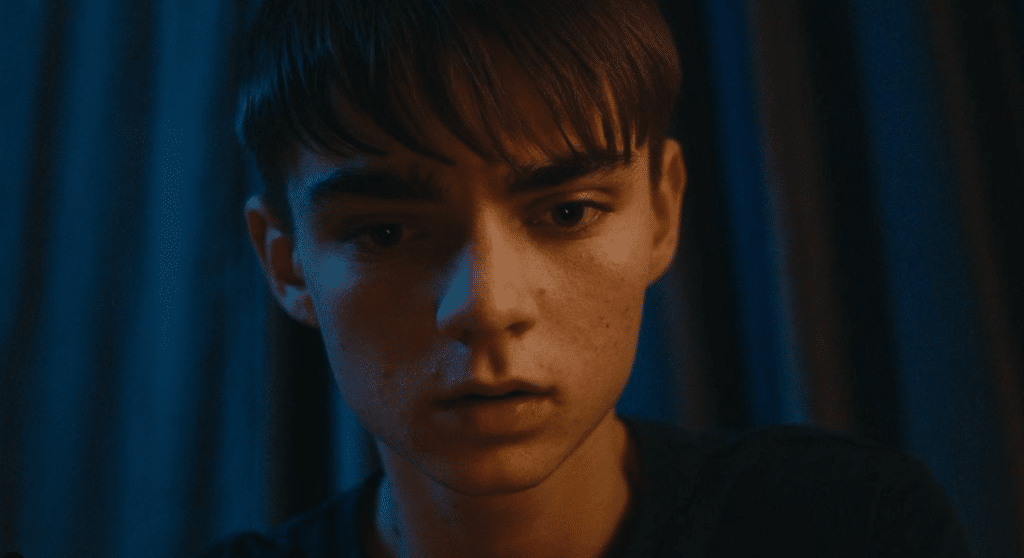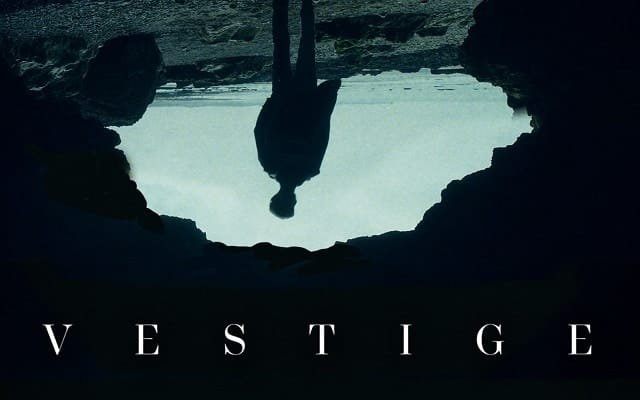
The act of fossil-hunting is, for all its wholesomeness and its interesting history and fresh air, a hunt for a past which is by now utterly alien to us. It hangs somewhere between presence and absence; fossils are here, but gone; permanent, but extinct. And if all of this sounds like a rather lofty way to introduce a short film review, then I’d argue that it’s all relevant to Vestige (2023), a film which takes fossil-hunting as its starting point, albeit taking it somewhere very different. Even given its runtime of just twelve minutes, it tantalises at something significant and resonant beyond its immediate storyline.
Our fossil hunter is a teenage lad called Lucas (Ben Hackett). As he listens to tape recordings of his father giving him advice (on music, and on finding fossils) he is suddenly drawn to one rock in particular: taking his hammer and chisel, he splits it open, revealing an extraordinary fossil inside. But Ben has little time to admire what he’s found: the recording of his dad’s voice (another absent-presence here) is wavering, as if something is interfering with the player. Could it be the fossil? Lucas turns sharply, calling his father’s name. It’s clear by now that dad is gone, but is he gone? Lucas comes to believe that his father is reaching out to him; if he could just decipher the message, then he could have his dad back again. For Lucas, this means finding his dad through what he has left of him – his voice, his tapes – as well as their shared love of fossils.
The fossil hunting aspect of Vestige is matched by its focus on analogue technology; there are a lot of love letters to analogue tech in cinema at this point, driven by nostalgia and a half-held memory that some of this equipment could be (and can be) quite creepy and evocative, though here it makes sense on a more practical level: Lucas’s father would probably have grown up with cassette tapes, and probably would have collected them. But tape itself forms part of the film’s puzzle; it’s also a source of anxiety, as well as a connection to the past. At heart, this is a deeply sad story, but it moves increasingly into the fantastical as it draws to its close, using Lucas’s dad’s collection as part of this (with some neat visual devices along the way). And, ultimately, is this is a sad story, come the end? You could certainly argue that it’s ambiguous; it doesn’t spill every detail, so you’re left wondering what, exactly, has unfolded. Whether you see it as a horrific trickery or something more opaque is down to you.
However you read it, Vestige does a great deal with all of its elements, offering an interesting exploration of grief and loss but looking at these from a horror-tinged, engaging and unorthodox perspective. It works well, and the striking County Durham beaches which form the film’s backdrop are the perfect environment for such a stark, but rather beautiful film.
Vestige (2023) featured at this year’s London FrightFest.
